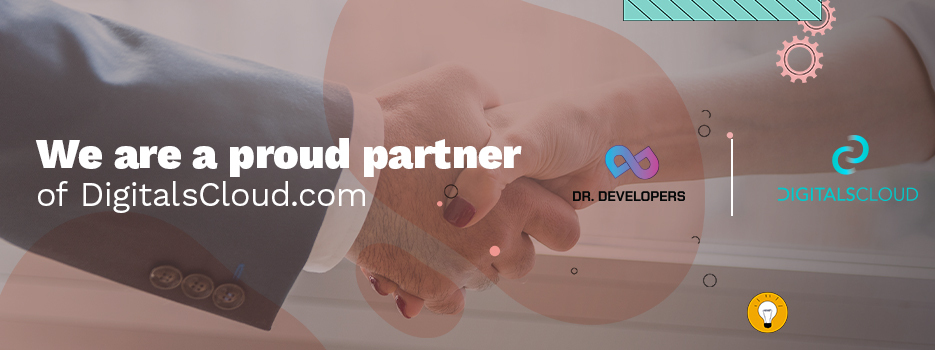
- Samrina Khan
- March 20, 2024
GUIDING THE ARTIFICIAL INTELLIGENCE REVOLUTION: EMPOWERING THE GLOBAL ECONOMY FOR THE BENEFIT OF HUMANITY
In an era where “artificial intelligence” is no longer just a futuristic concept, we stand at the edge of a transformative era. The global economy, estimated to be worth trillions, is on the cusp of a revolution led by Artificial Intelligence. This revolution promises to redefine the world economy ranking and significantly impact every part of society.
The Global Economy and Artificial Intelligence: A Symbiotic Relationship
At its core, the economy is defined as the organized system of human activity involved in the production, consumption, and distribution of goods and services. As per the International Monetary Fund (IMF), AI integration into this system is inevitable and immensely beneficial. The introduction of AI into various sectors is poised to streamline processes, enhance efficiency, and create a dynamic where the world economy in trillions could see substantial growth.
For instance, the United States economy, a leading player in the global market, has seen AI dramatically influence sectors like healthcare, finance, and manufacturing. AI-driven technologies optimize supply chains, predict market trends, and personalize customer experiences, enhancing the market economy and competitiveness.
AI Role in Job Creation and Salary Enhancement
Contrary to the fear of AI usurping jobs, the International Monetary Fund (IMF) highlights the Artificial intelligence potential in job creation and salary augmentation. The evolution of IMF AI jobs salary indicates a trend where AI complements human skills, leading to create new job categories and a surge in demand for AI-skilled professionals. This evolution is not just limited to high-tech roles; AI creates opportunities in various sectors by enabling new services and products.
One of the most significant advantages of AI in the workplace is its ability to increase productivity. AI tools help professionals do their jobs better and faster, freeing up valuable time. This time can serve on higher-value tasks such as engaging with clients, collaborating with colleagues, and exploring new business areas. By automating routine tasks, AI enables workers to focus on creative and strategic aspects of their jobs, adding more value to their roles and the organization.
However, the impact of AI on the job market is multifaceted. Goldman Sachs, in a recent analysis, estimated that as many as 300 million jobs globally could be affected by AI in some way. Moreover, a Pew Research Center report suggested that about 1 in 5 employees in the U.S. are working in jobs with high exposure to AI. Data from ResumeBuilder also found that AI-related job losses are rising, signaling a significant shift in the job market landscape.
Despite these concerns, many experts argue that AI’s impact on jobs could be analogous to other technological advancements in history – not just erasing jobs but creating new ones. While some roles may become obsolete, AI is likely to lead to the emergence of new job categories and specialties, much like the internet and automation did in the past. These new jobs may require different skill sets, emphasizing the importance of adaptability and continuous learning in the AI-driven economy.
AI and Society: An Impact Beyond Measure
The impact of AI on society extends beyond economic parameters. AI, with its vast potential, holds to solving some of the most pressing issues facing humanity, including climate change, healthcare challenges, and educational disparities. AI-driven solutions in healthcare, for instance, are revolutionizing diagnostics and treatment plans, making healthcare accessible and highly effective.
However, as with any significant technological advancement, Artificial Intelligence’s impact on society comes with its set of challenges. The concept of AI consciousness raises ethical considerations about Artificial Intelligence and its role in decision-making capabilities. Its positive societal impact is crucial, ensuring that AI development and deployment align with human values and ethics.

Harnessing AI for the Benefit of Humanity
The benefits of AI are manifold, but realizing them requires a concerted effort to guide AI development in a direction that benefits humanity. That entails creating an atmosphere of inclusion, and ethical concerns drive AI developments. Ensure policies that distribute AI benefits widely and mitigate its potential negative impacts, such as job displacement and privacy concerns.
As AI undergoes rapid advancement, influenced by the consolidation of key technological enablers, its widespread deployment impacts work and daily life. This continuous evolution contributes to profound economic and social transformations. It harnesses the full potential of AI while curbing its undesirable effects, a multifaceted approach involving various stakeholders is necessary.
National and international policies must recognize the varying institutional, economic, political, and cultural conditions that shape AI’s influence on factors like convenience, efficiency, personalization, privacy protection, and surveillance. The geopolitical aspect of AI development cannot be understated; nations leading in AI are poised to dominate economically and politically in the coming decades, potentially heightening international tensions. Therefore, protecting citizens from malicious or biased uses of AI is paramount for national security and political stability.
The differentiation in AI development among nations, while posing a risk of fragmentation and threatening global technological collaboration, also presents an opportunity to enrich the AI ecosystem. This diversity can stimulate innovation and introduce competitive balances through the decentralization of AI. International cooperation, facilitated by intergovernmental and non-governmental organizations, private sector initiatives, and academic research, has historically improved common welfare in technology realms. Given AI’s profound impact, this cooperation might need to extend beyond regulatory and technological issues to address broader policy and governance challenges.
Embracing the concept of technology diplomacy is critical in aligning global AI policy and governance, fostering a dynamic AI innovation system. This approach is essential to prevent malicious uses of AI and enhance human welfare, fostering common interests across jurisdictions. Developing mutually beneficial strategies requires sustained efforts, fostering dialogues that enable all parties to utilize AI for humanity. It is crucial to recognize the difficulty of this undertaking and the need for worldwide policy cooperation to address the ethical, cultural, political, and economic fallout from artificial intelligence.
AI: A Double-Edged Sword?
It’s complicated to predict whether AI will benefit or harm the globe. AI, like any powerful tool, has the potential for both. Its application and governance will ultimately determine its impact. Harnessing the positive potential of AI involves developing and utilizing it to focus on human capabilities and address societal challenges.

Conclusion: Steering the AI Revolution Towards a Bright Future
In conclusion, AI’s role in transforming the global economy is undeniable. Its integration into various sectors has the potential to spur unprecedented growth and efficiency. However, steering this revolution in a direction that benefits humanity requires a balanced approach, emphasizing ethical AI development, equitable distribution of its benefits, and addressing societal challenges. As we embrace AI, it is crucial to ensure that this technological wonder becomes a tool for enhancing human life and driving forward a prosperous, inclusive global economy.
Recent post


10 Easy SaaS Business Ideas – Practical For Beginners

5 Advances in Artificial Intelligence and Machine Learning in 2024
Most Popular

We are a proud partner of DigitalsCloud.com

Top 10 Best Writing Apps to Enhance Your Writing Skills

